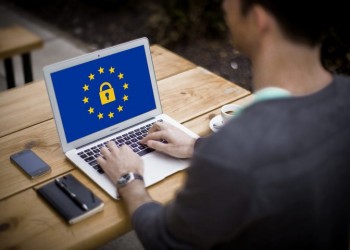Software piracy and illegal downloads and a rapidly-growing problem, as we point out in Parenting High-Tech Kids: The Ultimate Internet, Web, and Online Safety Guide. Pirated content can range from video games and comic books to movies, music, books and more, which are being made available for free or a deeply discounted price because they are being provided without the creator or copyright owner’s consent. That doesn’t mean that the surviving Beastie Boys have to approve everyone that wants to download Check Your Head off of iTunes. But it does mean that artists who create works are entitled to royalties or other benefits whenever someone purchases, downloads or uses their creations. Although there are lots of legal ways for children to get their hands on media and other types of content, the Internet makes it really easy to enjoy these materials without paying for them. We won’t list out specific sites that facilitate distribution here (nor could anyone hope to catalogue all), but will mention that high-profile sites such as MegaUpload.com were targeted by the Department of Justice for providing free “peer-to-peer” file sharing.
While many experts are noting a reduction in P2P downloads with the continued popularity of sites like Netflix, Steam, and iTunes, others are seeing the segment – which allows direct file transfer between devices over the Internet – continue to boom. In a recent interview with Wired.com, a Sandvine spokesperson said that “from 2009 to 2010, real-time entertainment grew to represent 42.7% (up from 29.5%) of total Internet traffic in the evening, while in that same time, P2P file sharing also grew, from 15.1% to 19.2%.”
Tips:
- By using a monitoring program such as Web Watcher Kids, parents can easily monitor downloads to track what’s coming in. Any music and movie downloads should likely raise a flag for your family, especially if they’re being enjoyed without your consent.
- Although enforcement may be hard to execute, educate your children about the repercussions of illegally sharing and downloading content – the sharing of copyrighted material without permission is against the law, and a serious offense that, as of press time, can carry punishments of up to five years in jail and fines of $250,000.
- Note that your ISP may contact you if they notice large data transfers happening on your account, such as those potentially associated with illegal activity. Not only could your Internet provider potentially throttle your bandwidth as a result, they may begin charging you more for data transfer.
- It can be tough to understand why kids “getting a good deal” on entertainment is a bad thing, but we must teach our kids that piracy is no different than stealing. The US Patent and Trademark Office equates the issue of software piracy with the traditional image of pirates in an effort to educate kids on the downsides of the issue, explaining that piracy is wrong “because a lot of people who put a lot of hard work into making the DVD or computer game will not be paid.”
- Also important to note: Many times pirated software comes from untrustworthy sources. A recent study found that a quarter of websites that offered counterfeit or pirated software also attempted to install spyware or Trojans.
For more on how to avoid the challenges associated with software piracy and illegal downloads, you can also see our bestselling book Parenting High-Tech Kids: The Ultimate Internet, Web, and Online Safety Guide.














